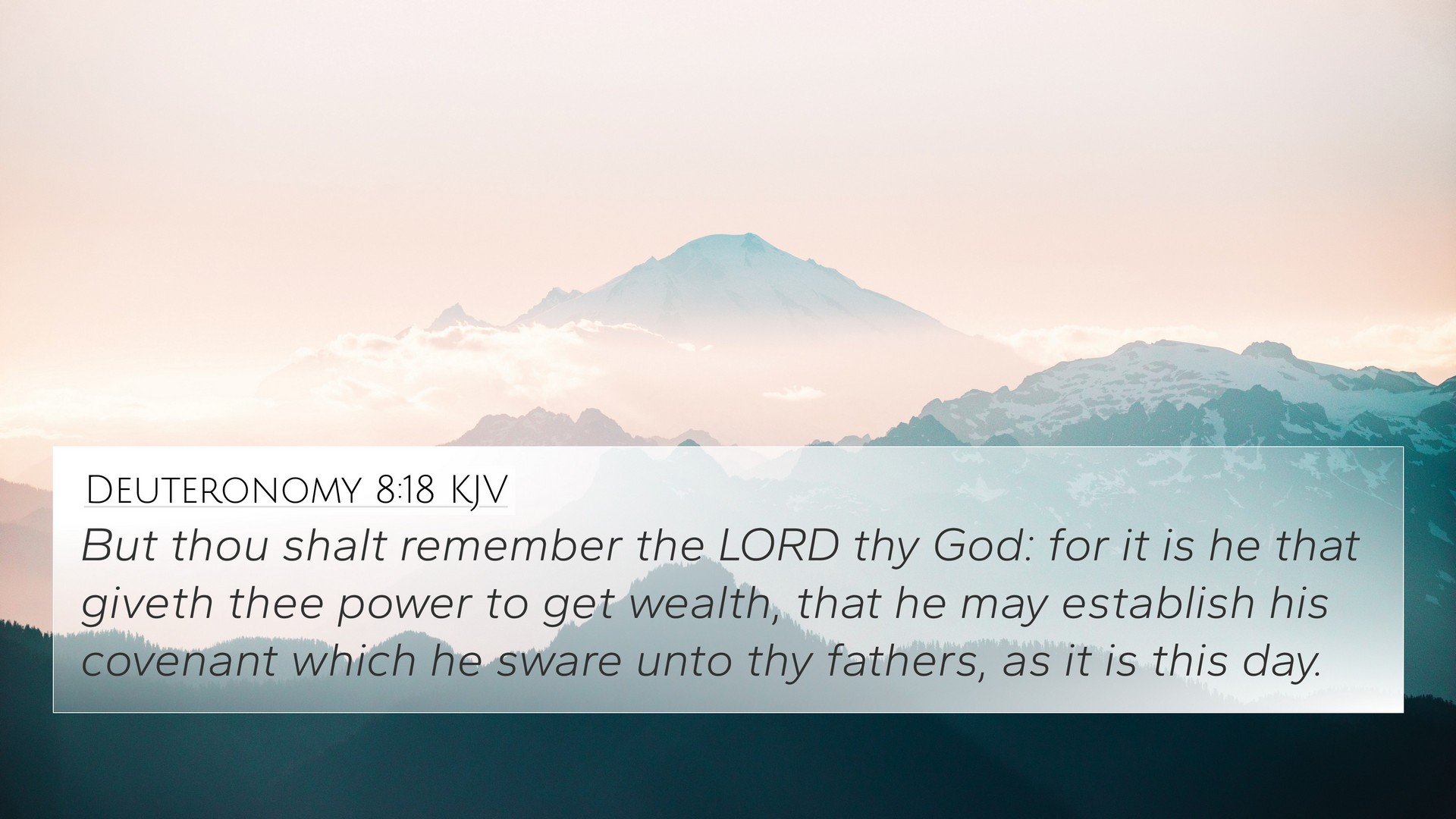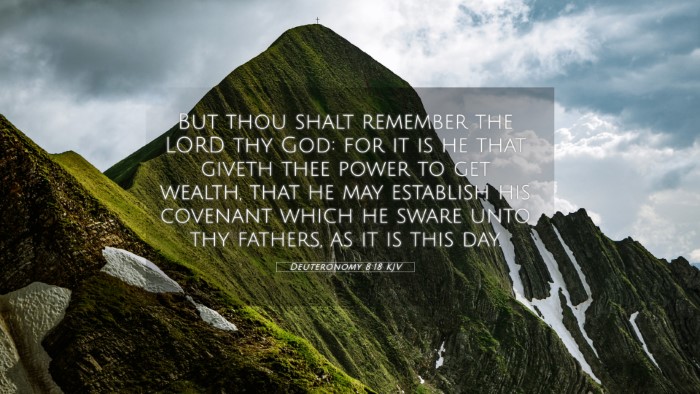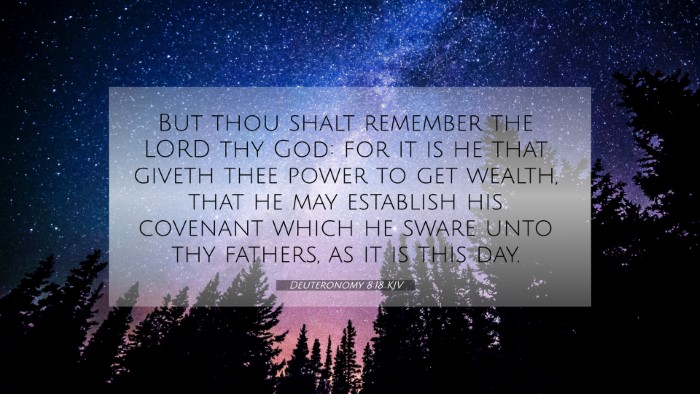Meaning and Interpretation of Deuteronomy 8:18
Verse: Deuteronomy 8:18 states, "But thou shalt remember the LORD thy God: for it is he that giveth thee power to get wealth, that he may establish his covenant which he sware unto thy fathers, as it is this day."
Overview
This verse serves as a reminder of the source of Israel's prosperity and success. It emphasizes the importance of acknowledging God in all aspects of life, particularly in the context of gaining wealth and blessings.
Key Themes
- Divine Provision: Acknowledging that God is the source of one's ability to achieve wealth.
- Covenant Relationship: Reflecting on the promise made to the patriarchs and the continuity of that promise.
- Gratitude and Remembrance: The call to remember God in times of abundance.
Commentary Insights
According to Matthew Henry, this verse lays a vital foundation for understanding the balance between human effort and divine blessing. He emphasizes that wealth is not merely a product of one's toil but a gift from God, which also comes with the responsibility to acknowledge Him.
Albert Barnes adds that the power to acquire wealth is not just financial capability but also includes the wisdom and opportunities God provides. The verse indicates the covenantal aspect of God’s promises to His people, which undergirds their existence and prosperity.
Adam Clarke interprets the power to get wealth as indicating a realm far beyond money, extending into all aspects of life. Clarke stresses the importance of using any wealth or power accrued for the purposes of God and society at large, fulfilling the covenantal obligations to be a blessing to others.
Cross-References
This verse has several key cross-references that emphasize its themes:
- Deuteronomy 8:6: "Therefore thou shalt keep the commandments of the LORD thy God, to walk in his ways, and to fear him."—The call to obedience in relationship to God's blessings.
- 1 Chronicles 29:12: "Both riches and honor come of thee, and thou reignest over all."—Affirmation that God is the ultimate source of wealth.
- Psalms 24:1: "The earth is the LORD's, and the fullness thereof; the world, and they that dwell therein."—God’s ownership of all creation reinforces the understanding of provision.
- Proverbs 10:22: "The blessing of the LORD, it maketh rich, and he addeth no sorrow with it."—God's blessings come without the accompanying troubles that often accompany human endeavors for wealth.
- Matthew 6:33: "But seek ye first the kingdom of God, and his righteousness; and all these things shall be added unto you."—The principle of prioritizing God leads to effective, divinely blessed endeavors.
- Philippians 4:19: "But my God shall supply all your need according to his riches in glory by Christ Jesus."—Affirmation of God’s providential care for his people.
- James 1:17: "Every good gift and every perfect gift is from above."—Recognition that all good things, including wealth, are from God.
Thematic Connections
In exploring the connections between Bible verses, we find that this verse is intricately tied to the broader themes of divine providence and covenant faithfulness throughout scripture. It resonates particularly with ideas presented in:
- Exodus 20:17: The commandment against coveting, which emphasizes contentment with what God provides.
- Luke 12:15: Jesus’ warning about greed and the sufficiency found in God’s provision.
Final Thoughts
Deuteronomy 8:18 invites believers to a deeper understanding of their relationship with God, where the wealth gained is a direct reflection of God’s blessing and purpose in their lives. Recognizing this enables a meaningful walk with God, encourages gratitude, and fosters a spirit that desires to fulfill the covenantal promises made to those who came before us. The richness of scripture, when we cross-reference and explore connections, enhances the depth of understanding and appreciation for God's character and intentions.
Conclusion
In summary, Deuteronomy 8:18 is not just a declaration about wealth, but a profound reminder to maintain an attitude of remembrance towards God, acknowledging Him as the source of all blessings while actively engaging with His covenant in our lives.








